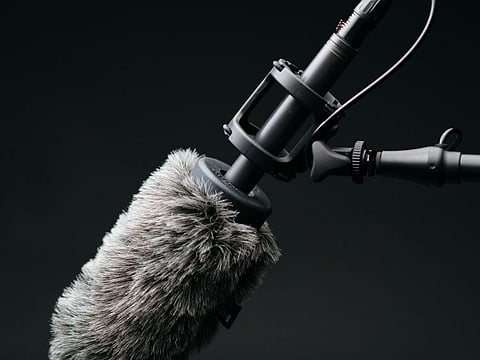Why free press matters to the present world
While media is under serious assault, a communiqué by the G7 is not going to help much

After their meeting in Cornwall, UK, the leaders of the Group of Seven (G7), together with leaders of Australia, India, South Africa, and South Korea, have issued the Carbis Bay communiqué on June 13, 2021, which reaffirms their commitment to increase cooperation on supporting democracy.
Furthermore, they have pledged to counter foreign threats and strengthen media freedom and ensure the protection of journalists in their own countries.
With the global decline of democracies and the rise of populism, media freedom has deteriorated worldwide in the last one and a half decades. The increasing neglect of the conditions that strengthen the democracy has been the main reason for destabilising the democratic order.
Also Read: How COVID-19 further polarised the world
Some elected authoritarians are becoming very creative in seizing absolute power, destroying the rule of law, limiting the space for dissent, violating the rights of minorities and migrants while at the same time keeping a shield of electoral legitimacy for them.
The control and manipulation of media are the primary weapons for the populist authoritarians in this innovative project of keeping a sizeable and vocal electoral support base with the help of controlling the information.
Providing the people access to fact-based information can only help turn the tide in favour of global democracy and freedom. Knowledge is power, and a free press helps inform the public to participate in a democratic process meaningfully. A democratic society depends on the people’s right to hold and express informed opinions, not only when voting but always.
Accurate reporting is of immense importance to forming constructive public debate to influence policies at various levels. Moreover, an independent press is critical to hold the rich and powerful accountable by ensuring transparency in decision-making in a democracy.
A free press enables people to ask tough questions to the people in power. It helps them to critically analyse policy decisions. Media freedom is the key for the voters to make the right choices at the time of elections and make their voices heard to keep elected authorities in check. Free media also protects minorities, the poor, and the powerless in a majoritarian democracy under a populist regime.
There is no doubt that the pluralism and freedom of media are essential to democratic rule, whether regular press or social media. A self-governing society must have accurate information to make the best possible decisions. As Abraham Lincoln had succinctly put it, “Let the people know the facts, and the country will be safe.”
The nexus between media, democracy, and civic engagement is a bulwark against pursuing majoritarian politics and subversion of constitutional norms and practices.
Freedom of press matters
Freedom of the press is essential in a democracy because it plays a vital role in informing citizens of their rights and monitoring the actions of elected regimes.
When a regime threatens the media and curtails press freedom, it endangers the democracy itself. In Thomas Jefferson’s words, “Our liberty depends upon the freedom of the press, and that can’t be limited without being lost.
However, many democracies worldwide are witnessing serious threats to their democratic polity by electing populist leaders, who consistently limit the freedom of the press.
Taking advantage of social, political, and ethnic stresses in their countries, several electorally chosen undemocratic leaders are engaged in murder, intimidation, harassment, and illegal detention of journalists, media professionals, and social media influencers. Misogynist attacks on women journalists by populist leaders and their followers have also become regular.
Either these populist leaders control the country’s media houses or use state power to silence them. They are spending massive resources to target their opposition through social media platforms.
When these new media are becoming critical and difficult to dominate, various arbitrary laws are being brought in, even in some cases banning these platforms and suspending the internet altogether.
While press freedom has been under serious assault in many struggling democracies, a formal communiqué by the G7 countries and others is not going to help much.
Even though the free press and independent journalism are the lifeblood of any democracy, development assistance to media in developing democracies is minuscule. Only on average, 0.3% of official development aid (ODA), less than $500 million per year, is being directed toward supporting the media sector.
It is more urgent than ever for the developed democracies to join hands, cooperate, and coordinate support and promote the free press in struggling democracies.
If the Biden administration and G7 countries are serious about their democracy project, they must be prepared to take punitive actions against those who are engaged in curtailing media freedoms.
The world needs a fresh strategic approach and a heightened level of determination to support media to protect democracies from predatorial populists effectively.









